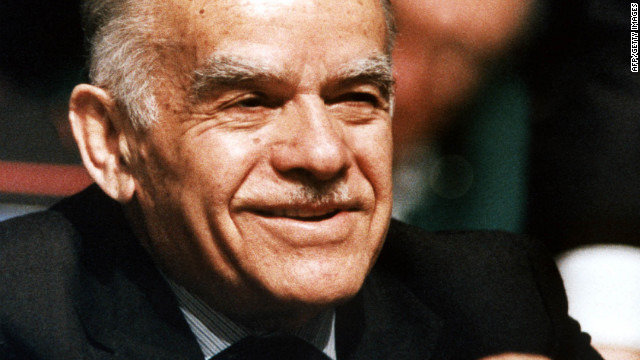
The sight of employees smoking outdoors in all weathers is now commonplace. Smoking areas in bars, pubs, restaurants and hotels are long gone.
It is five years since England became the last part of the UK to introduce legislation banning smoking in workplaces and enclosed public spaces.
The aim was to reduce passive smoking, or exposure to secondhand smoke, which is known to be harmful.
Scotland was the first country in the UK to introduce a smokefree law in March 2006.
England's smokefree laws came into force on 1 July 2007, with Northern Ireland on 30 April 2007 and Wales on 2 April 2007.
So what has been the impact of the legislation on our health?
Amanda Sandford, research manager from Action on Smoking and Health (Ash) says it was long overdue.
"When it started people wondered why we'd waited so long to do it. Non-smokers always found it unpleasant breathing in other people's smoke.
"It is one of the most important public health acts in the last century. There's no question it's been hugely beneficial."
The ban was popular with British adults when it was implemented - and a recent poll of more than 12,000 people found that 78% of adults still support it.
A review of the evidence on the impact of the law in England, was commissioned by the government and carried out by Prof Linda Bauld from the University of Stirling and the UK Centre for Tobacco Control Studies.
Prof Bauld's report concluded: "The law has had a significant impact."
"Results show benefits for health, changes in attitudes and behaviour and no clear adverse impact on the hospitality industry."
A study of barworkers, using saliva, lung function and air quality tests, showed their respiratory health had greatly improved after the laws came in, thanks to the reduction in exposure to secondhand smoke.
Another study looking at children's exposure to secondhand smoking in England, between 1996 and 2007, found that their exposure levels had declined by nearly 70%.
Although this study only covered a few months beyond the introduction of the smokefree laws, Prof Bauld says children's exposure continues to decline.
Opponents of the legislation feared that it would push adults to smoke more at home, and therefore put children at greater risk of secondhand smoke.
But Scottish evidence suggests the reverse. A Glasgow University study showed a 15% reduction in the number of children with asthma being admitted to hospital in the three years after the ban came into force in Scotland.
Ms Sandford says smokers are now more aware about the dangers of secondhand smoke and are doing more to protect children at home.
Professor John Britton, chairman of the Royal College of Physicians' tobacco advisory group, says the ban "has had a huge impact on quality of life particularly in people with cardiovascular disease".
A Department of Health-funded study examining emergency admissions between July 2002 and September 2008 in England found a 2.4% reduction in admissions for heart attacks.
Breathing in secondhand smoke can increase the long-term risk, as well as the immediate risk of a heart attacks and angina, Prof Bauld says.
Research from Scotland reported a much larger 17% decrease in heart attack admissions in the year after its ban.
Another Glasgow study which looked at smoking and birth rates before and after the ban found a 10% drop in the country's premature birth rate, which researchers linked to the smokefree laws.
But there is no evidence as yet that smokers have given up smoking in huge numbers because of the legislation.
While overall levels of smoking among adults in Great Britain remained constant at 21% between 2007 and 2009, the north east of England saw a different trend.
There, the smokefree ban proved to be a trigger for some adults to quit with the largest drop in smoking in England - from 29% in 2005 to 27% in 2007 and down to 21% by 2011.
Smokers' groups say the ban has been a disaster for many pubs and clubs and the impact on many people's social lives has been huge.
Simon Clark, director of smokers' lobby group Forest, said smokers were being forced to take their habit elsewhere.
"Thanks to the ban many smokers are smoking and drinking at home. Who can blame them when the alternative is standing outside in the wind and rain?"
Calling for a comprehensive review of the impact of the smoking ban, he said: "We want the government to amend the legislation to allow separate, well-ventilated smoking rooms in pubs and clubs. Few people would object to that because no-one would be exposed to other people's smoke against their wishes."
But others want to take smokefree laws further.
The Royal College of Physicians supports a total ban on smoking in cars and would like to see the smokefree ban extended to anywhere where children are present.
"This includes parks, outside areas and cars. We would like to see tobacco imagery taken out of children's lives altogether," says Prof Britton.
A private member's bill to ban smoking in cars when children are present has been debated in the Lords recently.
Ash also supports a ban on smoking in cars but recognises the difficulties of imposing it.
"Cars are not as straightforward as the workplace because they are a private space. It does raise ethical issues, but because they are a confined space the level of smoke is concentrated."
Prof Bauld said: "In the next 20 years we should be able to halve smoking rates."
But that would need the introduction of plain cigarette packaging, tougher legislation on sale displays in shops, high taxes on tobacco and a crackdown on illicit tobacco, she said.
"It's children who start smoking, not adults. We need to prevent people starting in the first place, full stop."









